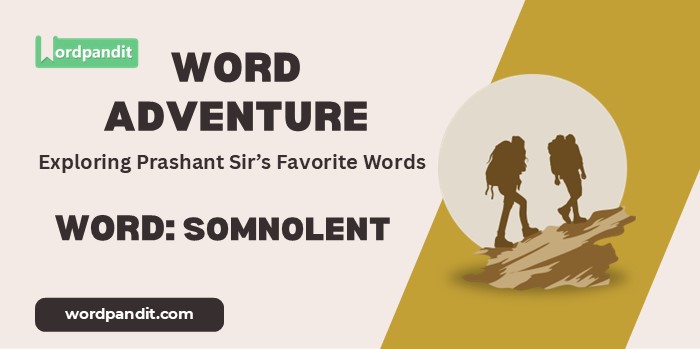Word Adventure: Somnolent
The Headline
“Somnolent: When Words Make You Wonderfully Drowsy”
The Scoop
In the cozy corner of English vocabulary, some words seem to embody the very state they describe. ‘Somnolent’ is just such a word – its soft sounds and gentle rhythm perfectly capturing that dreamy state between wakefulness and sleep. Join me as we explore this drowsy term that’s perfect for those lazy afternoon moments.
Let’s Break It Down
The Plot Thickens
‘Somnolent’ has its roots in the ancient world of Latin, where ‘somnus’ was not just the word for sleep but also the name of the Roman god of sleep (the equivalent of the Greek god Hypnos). This divine connection hints at how seriously ancient cultures took the matter of sleep and drowsiness.
The word entered English in the 15th century through Middle French, bringing with it a whole family of sleep-related terms. Its relatives include ‘insomnia’ (sleeplessness), ‘somnambulist’ (sleepwalker), and ‘somniferous’ (sleep-inducing).
Interestingly, ‘somnolent’ can describe both the state of being sleepy and the quality of causing sleepiness, making it a versatile word for discussing all things drowsy.
Word in the Wild
The Twist
Here’s something to keep you awake: while we often think of somnolence as a purely mental state, it actually involves complex physical changes in the body. During periods of drowsiness, our brain produces special waves called ‘theta waves,’ which occur in that twilight state between wakefulness and sleep. These waves are also associated with deep meditation and creativity, suggesting that being somnolent might actually enhance certain types of thinking!
Make It Stick
Somnolent: When your eyelids decide to hit the snooze button!
Your Turn
Think about the most somnolent situation you’ve experienced – perhaps a long lecture, a warm afternoon, or a cozy reading nook. What makes these moments so conducive to drowsiness? Share your sleepy stories in the comments below. Let’s explore how different environments and activities can trigger our somnolent sides!
Down the Rabbit Hole
- Curious about other sleep-related words? Explore ‘hypnagogic’, ‘torpor’, or ‘lethargic’.
- Interested in the science of sleep? Research ‘circadian rhythms’, ‘sleep cycles’, or ‘melatonin’.
- Want to discover more words from the root ‘somnus’? Look into ‘somniferous’, ‘somniloquy’, or ‘somnific’.
The Last Word
As we drowsily drift toward the end of our exploration of ‘somnolent’, I hope you’ve gained appreciation for this wonderfully sleepy word. It reminds us that sometimes, feeling a bit drowsy is just part of life’s natural rhythm. The next time you find yourself fighting heavy eyelids, remember – you’re not just sleepy, you’re somnolent! Until our next word adventure, this is Prashant from Wordpandit, wishing you just the right balance of alertness and restfulness in your day!














